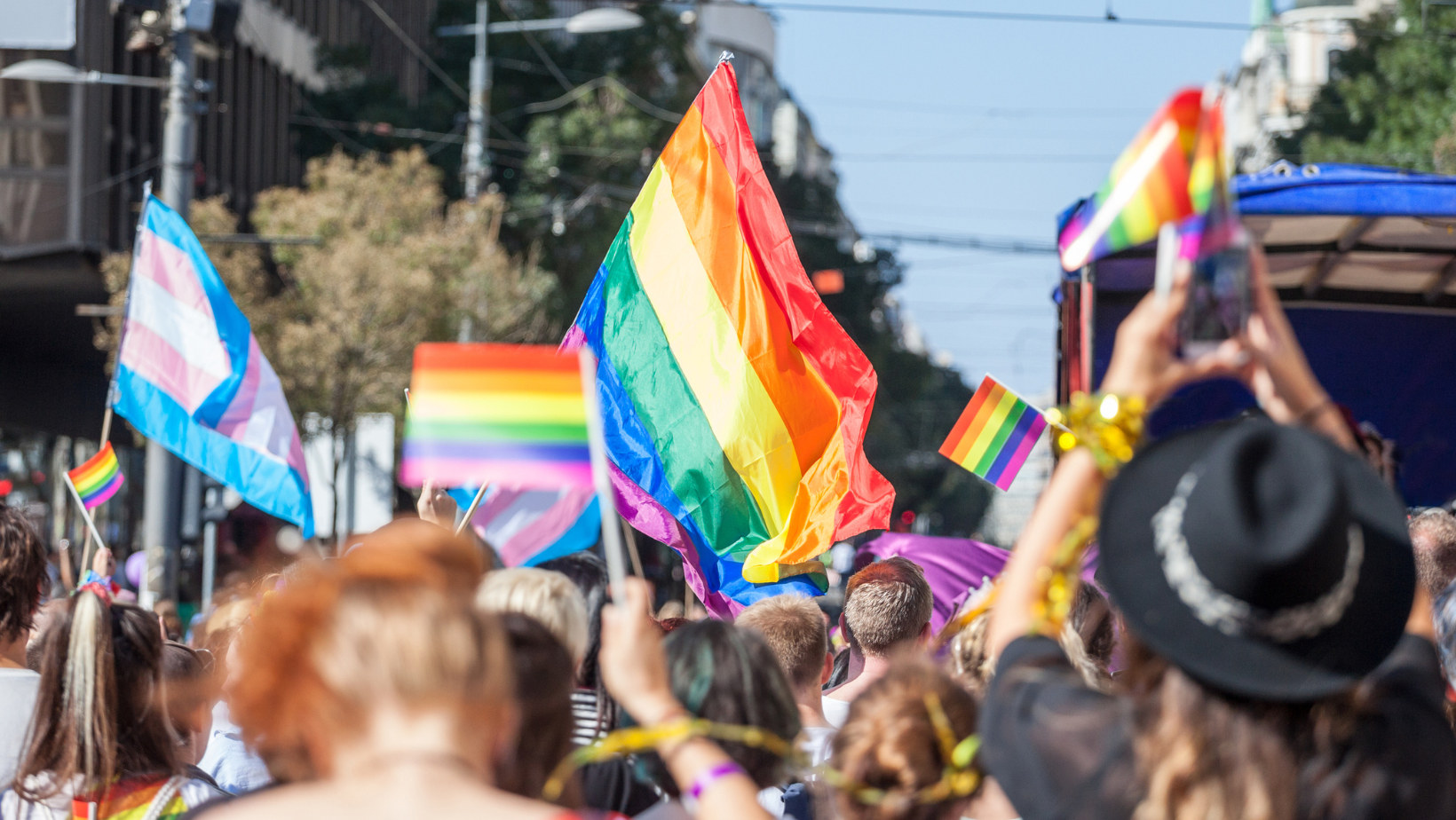Domestic Abuse within the LGBTQ+ Community - Why is Pride Month Important?
Back to newsAs a gay man, Pride month is a very important time. Pride Month is a celebration of diversity, resilience, and the ongoing struggle for equality everyone within the LGBTQIA+ community faces.
It gives us a chance to look back and give thanks to all those who have come before us and fought so hard to enable us to have the rights we have to today. (Please take the time to look up the Stonewall riots at the very least.) There is still much more work that needs to be done but I am immensely grateful to live in a country that allows me the same rights and freedoms to be the person I am and to love the person I love. However, it is also a time to address the unique challenges that the community faces, including domestic abuse. Domestic abuse in this community is often underreported and misunderstood. The statistics in and of themselves are shocking.
Stonewall's national surveys from 2008 and 2011 reveal that one in four lesbian and bisexual women have encountered domestic abuse in a relationship. Additionally, nearly half (49%) of gay and bisexual men have experienced at least one instance of domestic abuse from a family member or partner since the age of 16. Trans individuals might be at an even greater risk; a Scottish study found that 80% of trans people had suffered domestic abuse from a partner or ex-partner. Also, according to SafeLives' latest dataset, only 2.5% of all survivors accessing domestic abuse services in England and Wales identify as LGBTQIA+. Furthermore, from March 2017 to March 2018, just 1.2% of cases discussed at MARAC involved LGBTQIA+ victims or survivors. In the world of domestic abuse, the queer community is largely unseen.
As s survivor of historic domestic abuse, highlighting intimate abuse within the LGBTQIA+ community during Pride Month is crucial for several reasons. and misunderstood, partly due to societal stigmas, deeply ingrained homophobia and bias, and a lack of targeted resources.

Raising awareness helps to dismantle the stigma and silence that surrounds domestic abuse in LGBTQIA+ relationships. Traditional narratives about domestic abuse often centre on heterosexual couples, which can marginalize the experiences of queer individuals and make it harder for them to seek help. Current studies show that up to 80% of all LGBTQIA+ victims of DA never report the abuse to the police. From my own experience, I can relate. The police didn’t take it seriously and even made hurtful jokes and comments to my face, in front of my abuser. There was zero signposting to any service that could help me, and this ultimately led me to being isolated and alone. Suicide rates among the queer community stand at around 44% compared to 26% of heterosexual people. Support is immensely important to save lives and by bringing these issues to light, we validate their experiences and promote inclusivity.
Education is a powerful tool for domestic abuse prevention. Many people, including those within the LGBTQIA+ community, may not recognise certain behaviours as abusive due to a lack of awareness or understanding of healthy relationship dynamics. Public education campaigns during Pride can provide vital information about what constitutes abuse, how to recognise it, and where to seek help.
There is also a severe lack of funding for services that provide support for LGBTQIA+ individuals which in turn creates additional barriers when seeking help, such as discrimination from some service providers or a lack of understanding of LGBTQIA+ history and relationship dynamics. A recent report found that there is a huge lack of specialist support for LGBTQIA+ victims of domestic abuse across England and Wales. Out of 803 full time frontline domestic abuse support workers (known as IDVAs) there are only 3.5 that are LGBTQIA+ specialists. No funded LGBTQIA+ ‘by and for’ domestic abuse services exist in the Southwest and Northeast of England, or in Wales. There are no LGBTQIA+ specific services for perpetrators and/or perpetrator programmes. The Domestic Abuse Commissioner is calling for a dedicated funding pot of £262.9m for specialist ‘by and for’ services including for LGBTQIA+ survivors
Addressing domestic abuse during Pride Month reinforces the core values of the LGBTQIA+ movement: equality, respect, and dignity for all. It reminds us that the fight for queer rights must include ensuring safe and healthy relationships for everyone in the community and standing up to abuse in all forms. Everybody deserves a loving, caring relationship and abuse has to end for everyone. Nobody should be left behind and I believe that that every member of the LGBTQIA+ community deserves to live free from fear and harm. Be your awesome, unique, authentic self this Pride month.
Written by Ashley*
